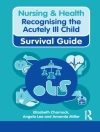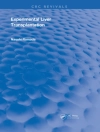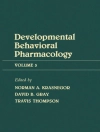This timely volume addresses the intimate pathophysiologic relationship between hypertension and cardiovascular disease. Hypertension is one of the most important global public health challenges, and its relationship to stroke and other catastrophic cerebrovascular diseases is an area of growing understanding. In this outstanding book, the editors and authors clearly and concisely synthesize our developing knowledge and place epidemiologic and physiologic information into a practical clinical context. Comprehensive chapters present the evidence supporting strategies for stroke prevention and care, including blood pressure lowering therapies, anti-coagulation, and management of other cerebrovascular risk factors. In addition to prescriptive measures for first stroke prevention, the book illuminates current regimens for care immediately after acute stroke and for the prevention of recurrent stroke. A unique section is dedicated to the exploration of the interaction between elevated blood pressure and brain function and cognition. The concluding chapter provides a resource towards optimizing the organization of stroke care. Hypertension and Stroke is of great utility for specialists in neurology and cardiovascular medicine and a valuable practical resource for all physicians caring for older adults and hypertensive patients.
Tabla de materias
Section I: Blood Pressure and Hypertension as Antecedents of Stroke Chapter 1: Blood pressure: definition, diagnosis and management (Raymond R. Townsend, Susan P Steigerwalt) Chapter 2: The link between hypertension and stroke: Summary of observational epidemiological studies (Youji Soga and Dilip K. Pandey) Chapter 3: Blood pressure control and primary prevention of stroke: Summary of clinical trial data (William J. Elliott) Section II: Mechanisms of Hypertension and Hypertension-Related Stroke Chapter 4: Mechanisms Underlying Essential Hypertension: Neurogenic and Non-Neurogenic Contributors (Scott H. Carlson and J Michael Wyss) Chapter 5: Pathophysiology and Mechanisms Whereby Hypertension May Cause Stroke (Hee-Joon Bae and Lawrence K.S. Wong) Section III: Management of Blood Pressure for First Stroke Prevention, Immediately after Acute Stroke, and for Recurrent Stroke Prevention Chapter 6: Cardiovascular risk assessment and summary of guidelines for the management of hypertension (Tamara Polonsky and George Bakris) Chapter 7: Acute Blood Pressure Management after Ischemic Stroke (Venkatesh Aiyagari) Chapter 8: Hypertensive encephalopathy and Acute Blood Pressure Management after Hemorrhagic Stroke (Rebbeca A. Grysiewicz and Sean D. Ruland) Chapter 9: Recurrent Stroke Prevention I: Diuretics and Angiotensin Converting Enzyme Inhibitors (ACEIs) – The PROGRESS Trial Results (Thomas KA Linden and Geoffrey A. Donnan) Chapter 10: Recurrent Stroke Prevention II: Angiotensin Receptor Blockers (ARBs) – The LIFE, MOSES and PROFESS Trials (Venkatesh Aiyagari and Philip B. Gorelick) Chapter 11: A Practical Guide to Recurrent Stroke Prevention (Laura Pedelty) Section IV: Mechanisms and Sequelae of Elevated Blood Pressure on Brain Function and Cognition Chapter 12: Vascular Cognitive Impairment and Alzheimer Disease: Are These Disorders Linked to Hypertension and Other Cardiovascular Risk Factors? (Fernando D. Testai and Philip B. Gorelick) Chapter13: Cerebral Small Vessel Disease, Hypertension and Cognitive Function (Elizabeth K. Geary and David L. Nyenhuis) Chapter 14: Cerebral microbleeds, small-vessel disease of the brain, hypertension and cognition (Anand Viswanathan, Hugues Chabriat and Steven M. Greenberg) Chapter 15: Imaging Effects of Hypertension on the Brain: A Focus on New Imaging Modalities and Options (Deborah M. Little, Evan Schulze, Nilay Shah and Shanele Mc Gowan) Section V: Organization of Stroke Care Chapter 16: The Joint Commission’s Initiatives to Improve Stroke Care and What it Means for Acute Stroke Care and Prevention (Wende Fedder)












